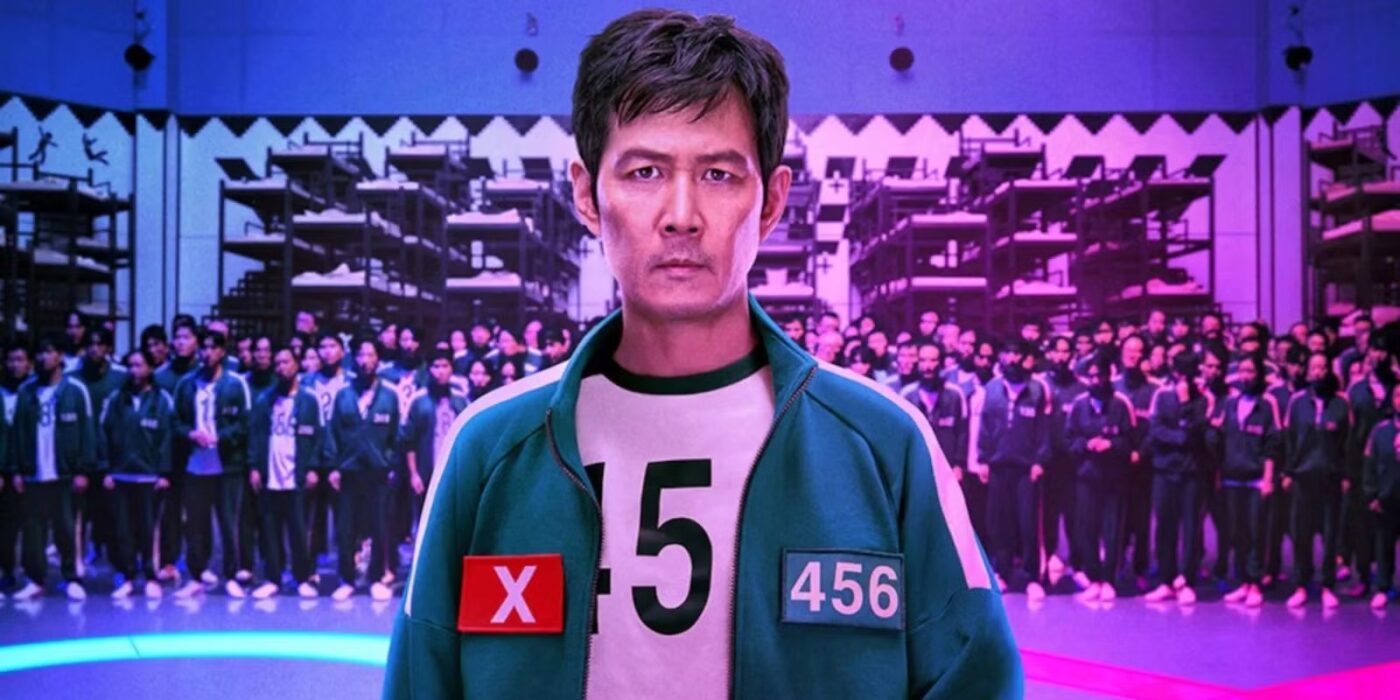A Mixed Return
Summary
Squid Game Season 2 expands on social themes and character development but struggles with repetition and uneven storytelling. Despite these issues, standout performances and compelling visuals preserve the series’ emotional impact and appeal.
Overall
-
Plot
-
Narrative
-
Acting
-
Characterization
-
Pacing
Squid Game’s first season tapped into a global consciousness, delivering a gripping blend of brutal competition and incisive social commentary about income inequality, corporate greed, and the human cost of desperation. It captured audiences by thrusting ordinary people into extraordinary circumstances, then shedding light on how vulnerable individuals become pawns in a system that rewards exploitation. With its sharp visuals, tense games, and unforgettable characters, the first season left a lasting mark on pop culture, prompting inevitable talk of a follow-up.
Creator Hwang Dong-hyuk, aware of this immense pressure, attempts to broaden the narrative in Season 2. He expands on themes of moral compromise, political manipulation, and the human psyche under severe stress. At its core, the new season aims to explore how, even when people are aware of the cruelty behind these deadly games, they might still choose to participate. In trying to exceed the emotional weight of Season 1, Hwang aims to hold a mirror up to society’s willingness to accept morally gray compromises for a shot at financial security or personal gain.
Squid Game season 2 consists of seven episodes that continue the story of Seong Gi-hun, again portrayed by Lee Jung-jae, who remains tormented by the horrors he witnessed in the first round of games. Despite winning the grand prize, Gi-hun is plagued by guilt and a profound sense of duty. He wants to expose the architects of the competition and prevent more innocent people from suffering. This motive becomes his guiding force and his moral compass. Determined to tear the operation apart, he is forced back into the grim spectacle, confronting his own culpability and lingering trauma.
A significant point of tension arises through Gong Yoo’s unnamed recruiter, who becomes much more than the mysterious figure who slaps potential participants at train stations. This season, his backstory comes into focus, highlighting how he, too, is a victim of a predatory corporate system.
Gong Yoo’s character exudes quiet menace. He is both menacing and tragic, revealing how the ruthless power structures that orchestrate the games can twist someone’s psyche into complicity. This exploration of the recruiter’s past supplies some of the most gripping moments, as we witness him wrestle with the knowledge that he is perpetuating a violent cycle.
Meanwhile, police officer Hwang Jun-ho, played by Wi Ha-joon, reemerges with an agenda of his own. Previously, he had managed to infiltrate the games to learn what happened to his missing brother. Now, in Season 2, he tentatively teams with Gi-hun, hoping to bring down the organization from within. This storyline teases a deeper critique of law enforcement, showing how the police system sometimes fails to address systemic injustices and corruption when faced with a behemoth like the secretive Squid Game organization. However, this angle remains mostly unexplored, leaving viewers wanting a more thorough investigation of institutional failures.
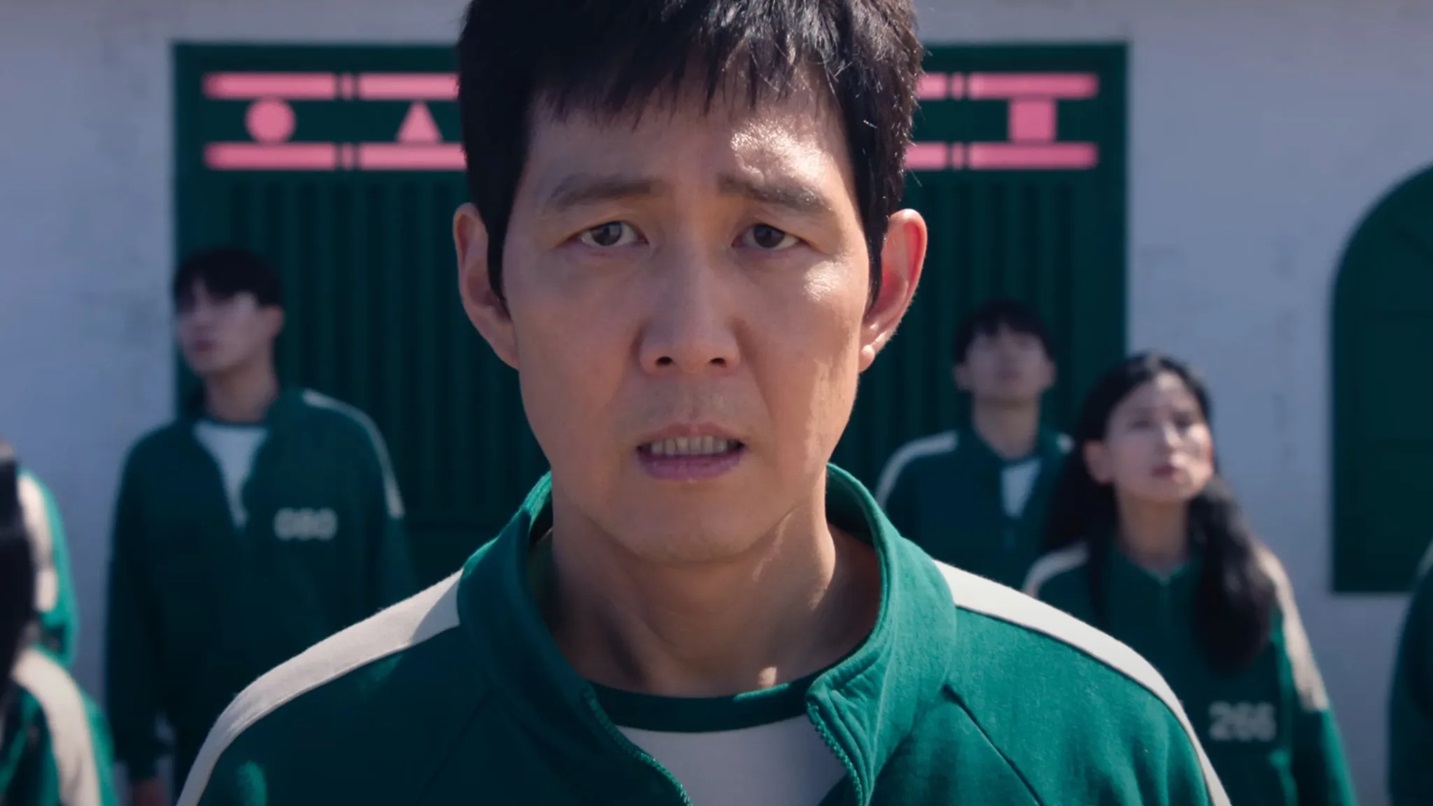
New players are also drawn into this nightmarish competition in Squid Game season 2. A savvy pregnant woman, portrayed by Jo Yu-ri, enters with the hope of securing a future for her unborn child. Her presence lends a heartbreaking urgency to the proceedings, as the threat of death affects more than just one life. There is also a troubled YouTuber, played by Im Si-wan, whose motivations connect to the constant need for online validation and clicks. His character’s fixation on digital fame provides a cautionary tale about how far individuals might go to stay relevant. Additionally, a mother-son duo joins the ranks, played by Kang Ae-shim and Yang Dong-geun. Kang Ae-shim’s portrayal of Jang Geum-ja, a stoic but resilient mother, emerges as a standout performance. She symbolizes the sacrifices that parents are willing to make. The quiet suffering and unwavering resolve in her eyes reflect the broader theme of how dire financial straits can push even the most loving people to take reckless risks.
One of the most polarizing changes in Squid Game season 2 is the revision of the infamous voting mechanic. The original season turned the vote to leave the games into a powerful statement, illustrating how each participant’s moral struggle and desperation could sway them to continue, despite the mortal danger. In Season 2, players are granted multiple opportunities to vote after each game. This time, the question isn’t merely about leaving but also about splitting the prize money if they decide to abandon the competition.
The idea behind this setup is to introduce greater tension and force participants to grapple with their own motivations after every traumatic round. However, in practice, these repeated voting scenes often lack genuine suspense and feel drawn out. Each new vote is meant to intensify the stakes, yet the structure dilutes the tension, making the outcomes more predictable than profound. By the time the third vote arrives, the audience may feel fatigued rather than on the edge of their seats.
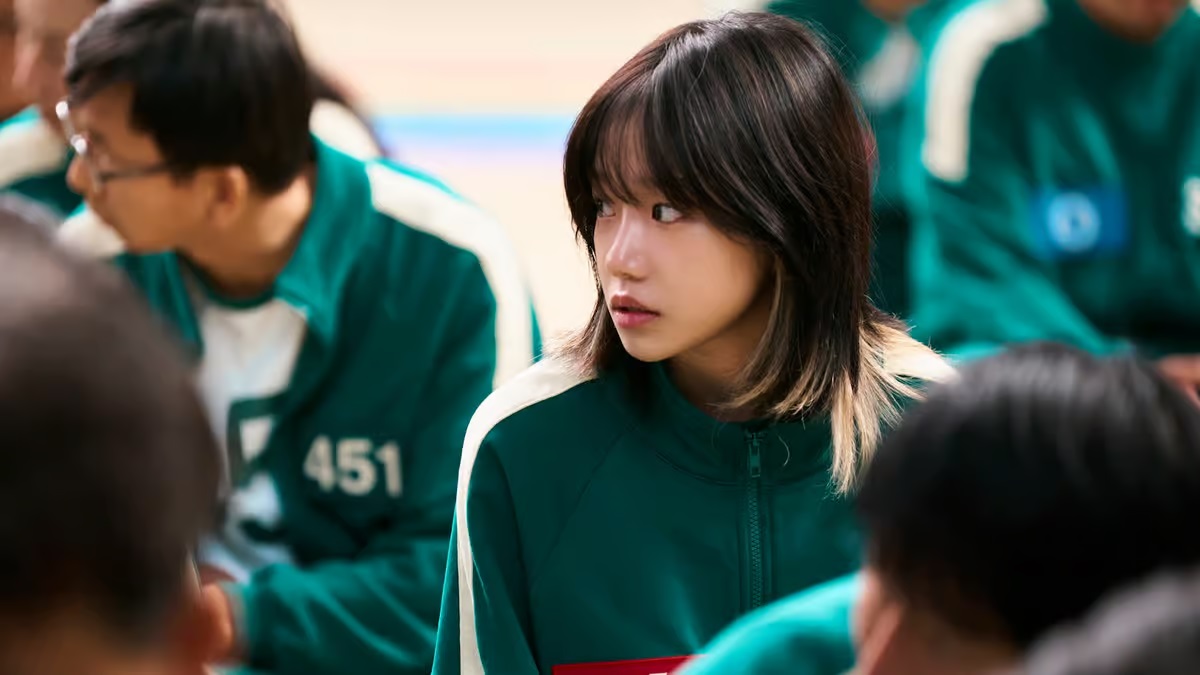
The new games themselves also vary in effectiveness. Season 1’s challenges, with their blend of childlike nostalgia and lethal consequences, were both shocking and strangely whimsical. In Season 2, occasional sparks of creativity surface, particularly in the unnerving Mingle game, staged around an eerily cheerful children’s song. This contrast between innocent aesthetics and life-or-death stakes is what originally made the series so haunting. Unfortunately, not all the challenges measure up. The so-called Six-legged Pentathlon is a prime example. It is a labyrinth of confusing rules that overstays its welcome, sapping tension from the overall narrative. Instead of amplifying dread, it becomes a noisy jumble, preventing viewers from investing in the players’ immediate fate.
Repetition becomes a recurring concern. Squid Game season 2 recycles plot elements without offering enough meaningful innovation. A fresh insider among the players, revealed as Front Man Hwang In-ho (Lee Byung-hun), lacks the emotional impact of Oh Il-nam’s twist in Season 1. Because we already know someone on the inside is playing a manipulative role, the storyline runs out of surprises. This takes away the sense of betrayal and shock that the first season handled so effectively. The result is an underwhelming subplot that deflates tension. The show attempts to cover it up with moments of brutality, but the outcome feels telegraphed from the start.
Likewise, the inclusion of another North Korean defector, Kang No-eul (Park Gyu-young), mirrors Kang Sae-byeok’s role but does not add much to the overall story. Her struggles feel underdeveloped, and the script misses an opportunity to broaden the discussion about refugees, border politics, and the harsh reality of defection. Instead, her presence glances off deeper themes, leaving her arc to meander without true significance.
Yet, the season offers highlights that preserve the series’ emotional core. One standout performance comes from Park Sung-hoon, who plays Hyun-ju, a former soldier and a transgender woman. Hyun-ju’s participation arises from profoundly personal circumstances, and her journey showcases a layered perspective on identity, acceptance, and survival. Park Sung-hoon portrays her internal battles with subtlety and grit. Hyun-ju’s storyline provides a poignant examination of why people might feel cornered into the games—unjust social barriers and systemic discrimination leave them with few viable alternatives.
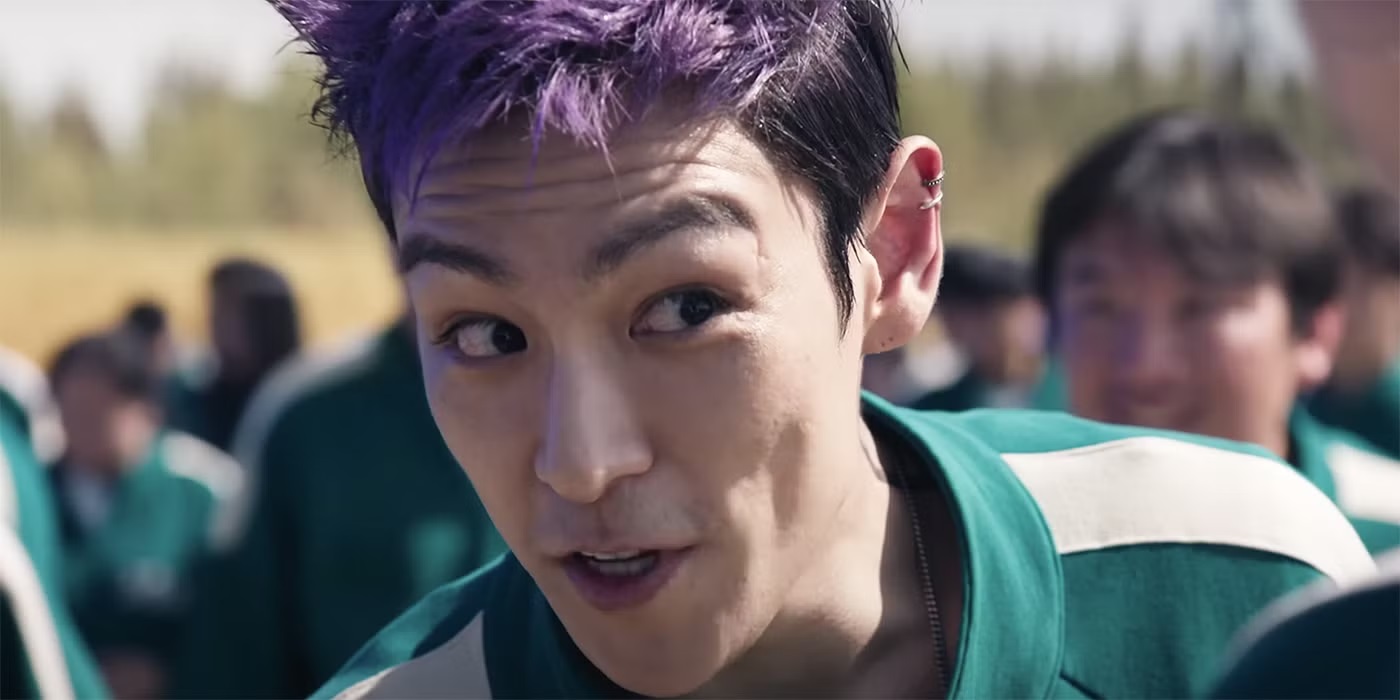
Another memorable addition is Choi Seung-hyun, famously known as T.O.P, portraying Thanos, a reckless underground rapper with grandiose dreams. His unpredictable behavior and darkly comedic outbursts inject variety into the otherwise bleak setting. Thanos’s cynicism is occasionally played for laughs, but it also underscores the desperation that drives people to cling to any form of notoriety, even in the face of mortal peril. His presence highlights how fame—real or imagined—can become a misguided form of salvation.
Visually, the show remains striking. Season 2 continues the vibrant color palette, setting scenes against pastel corridors, candy-colored sets, and disconcertingly cheerful iconography. This clash between bright playfulness and brutal outcomes intensifies the unease. The cinematography offers unsettling contrast: it lingers on the lifeless expressions of participants, then frames the dead bodies in these childlike arenas, reminding viewers that the show’s core horror lies in how easily innocent settings can become sites of monstrous cruelty. However, while the aesthetics still impress, the reliance on over-the-top gun battles and standard action tropes in the finale diminishes the eerie intimacy that made the original so potent.
The thematic expansion into democracy in a deadly environment is an intriguing idea. The multiple votes, while clumsy, do reflect how people grapple with collective decision-making when individual survival is at stake.
Where Season 1 teased what happens when players must choose between solidarity or continuing an inhumane game for personal gain, Squid Game season 2 tries to delve deeper into those shifting alliances. Yet the writing does not fully develop these angles. Instead, it repeats the message that desperate circumstances corrupt individuals, which was already established with considerable impact in Season 1.
Squid Game season 2’s pacing further complicates matters. The runtime stretches certain plotlines past their natural tension points. Characters stand around discussing votes, alliances, and moral dilemmas that the audience has already seen them confront multiple times. These moments could have probed deeper into the psychological toll or moral burden, but they mostly linger on surface-level squabbling. When the narrative finally shifts into the more engaging sequences, the momentum has already waned.
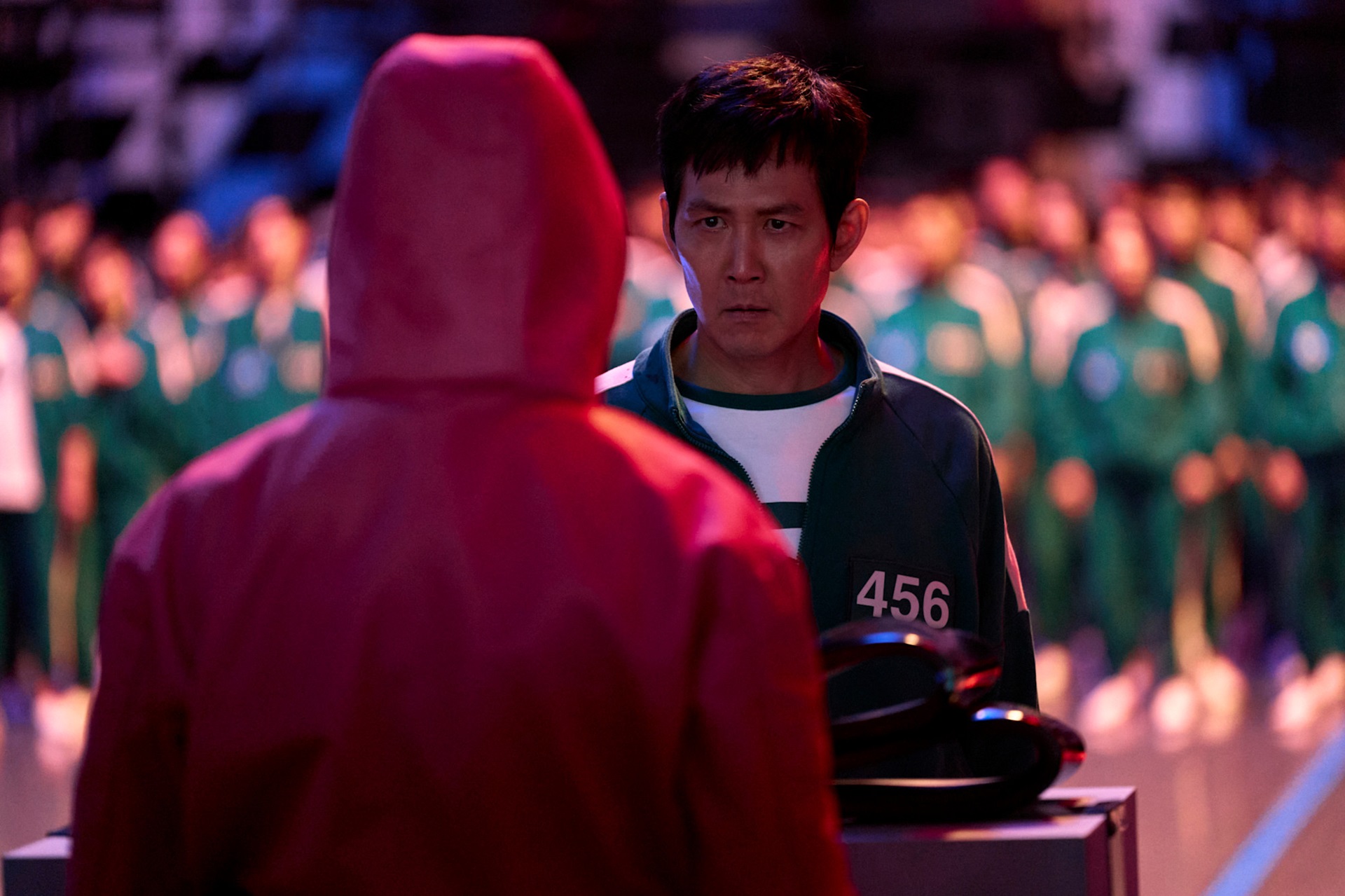
Still, glimmers of brilliance shine through. Gong Yoo’s performance as the recruiter remains magnetic, revealing a tortured figure caught in a web of manipulation. He has moments when he seems to question his own actions, though he suppresses any real regret to fulfill his grim duties. Likewise, Hyun-ju’s arc offers empathy and depth. Watching her weigh her survival instincts against her desire for self-acceptance and social validation leads to complex emotional territory. This resonates with viewers who may also feel pressured to compromise their identities to fit into a hostile world.
Viewers who have been hungry for more Squid Game content will likely appreciate the expanded character backstories and the creation of new, high-stakes games, even if some of these additions feel uneven. The second season devotes a considerable amount of screen time to the machinery behind the competition, showing glimpses of how the people running it rationalize their actions. However, the show occasionally veers into heavy-handed territory, hammering home the theme that poverty, debt, and lack of opportunity are powerful motivators for moral transgressions. In Season 1, this message was conveyed with economy and force. Here, it becomes repetitive, reducing its potency.
Moreover, Squid Game season 2 grapples with the burden of expectation. The first season was a shocking revelation, capturing hearts and minds worldwide. Everyone talked about the Red Light, Green Light game, the surprising betrayals, and the moral calculus each player performed.
The second season does not enjoy that element of surprise. While it attempts to expand the scope—both visually and narratively—it ends up retreading familiar ground. In trying to be bigger and more elaborate, it sometimes loses the tight, claustrophobic dread that made the original so compelling.
At the same time, the decision to focus on multiple new characters has merits. It provides diverse perspectives on why people enter these lethal contests. It also challenges viewers to consider the many shapes desperation can take. Some participants want to secure a better life for their family, some crave recognition, and some simply have nowhere else to turn. Yet, the show occasionally struggles to juggle all these stories, and some threads feel skimmed over rather than fully realized. Characters who spark interest in early episodes can fade into the background, while attention shifts to repetitive sequences of voting or predictable betrayals.
By the finale, the season tries to tie up loose ends with explosive confrontations that pit Gi-hun, Jun-ho, the recruiter, and others against one another. Guns blaze, corridors fill with smoke, and the loud chaos feels like a departure from the quieter, more harrowing tension of the first season. The thematic question—whether collective empathy can triumph in such a perverse system—remains ambiguous. The show suggests that, despite multiple votes and opportunities to stop the madness, the collective hunger for the prize money often prevails. This might reflect a cynical view of human nature, or it might be a commentary on how broken systems prioritize individual gain over collective welfare.
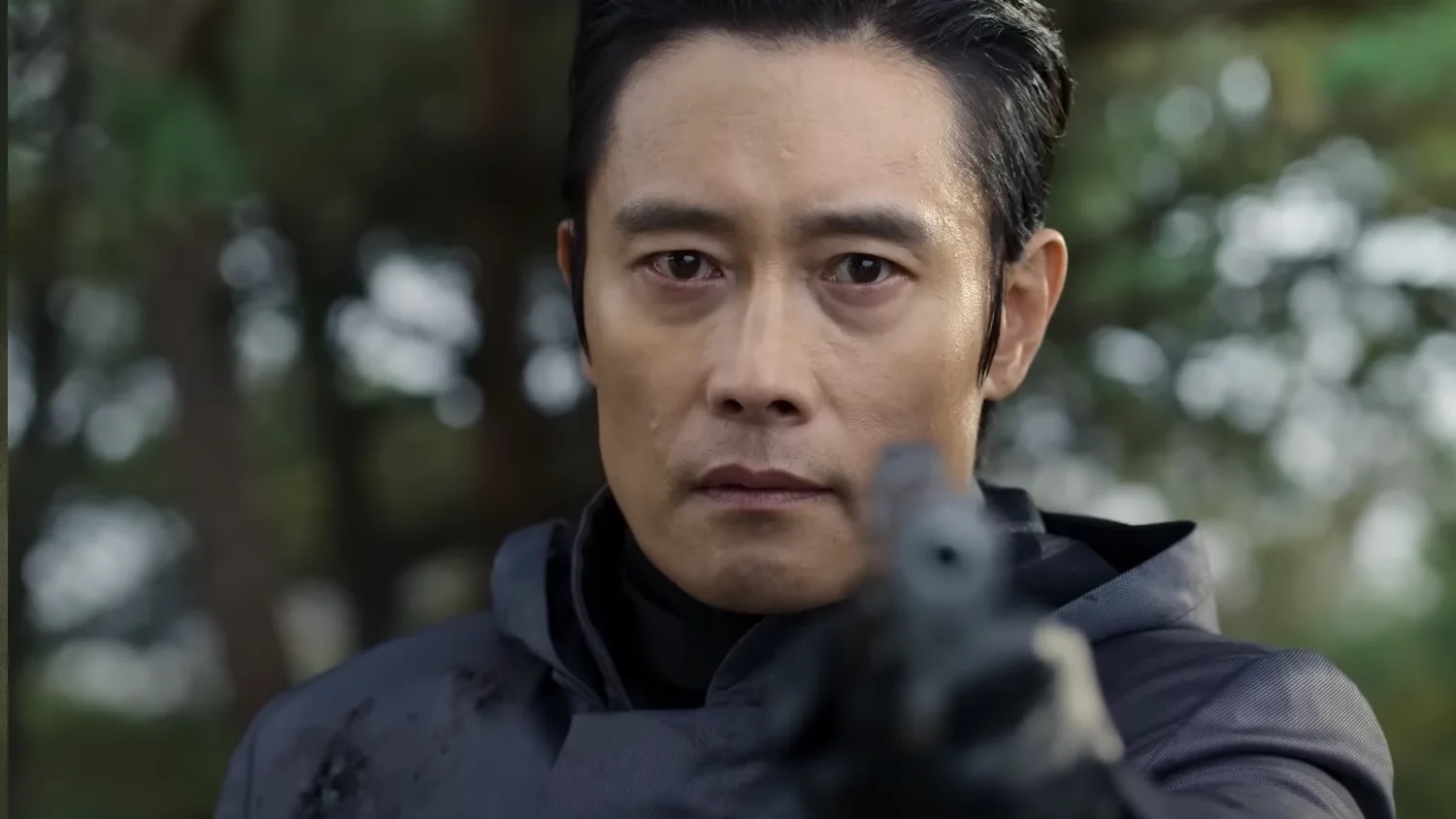
Ultimately, Season 2 is a mixed bag that tries to push the boundaries of the world introduced in the original but struggles to maintain consistency and novelty. For every inspired sequence, such as Gong Yoo’s intense personal conflict or Hyun-ju’s heartfelt journey, there are stretches that feel like echoes of a story told more effectively before. Season 1’s success hinged on its groundbreaking approach and unexpected emotional resonance. Season 2 does have moments of that resonance, but it does not achieve the same level of cohesion.
Longtime fans of the show will probably find enough reasons to tune in. Curiosity alone about the new players and games may compel them to watch. The expansion of lore and the glimpses into how the operation might function on an even larger scale could be fascinating. Still, it remains questionable whether the second season justifies its own existence beyond satisfying the demand for more Squid Game content. The series seems torn between repeating what worked and introducing new ideas, sometimes succeeding at neither. The overshadowing legacy of Season 1 looms large, and the attempts to exceed it can come across as forced or muddled.
In the end, viewers might walk away with conflicting feelings. The moral questions at the show’s core—what drives people to compromise their values, what role systemic injustice plays, and whether power structures can ever be dismantled from within—are as relevant as ever. Yet, the manner in which these questions are raised can feel heavy-handed or, at times, too superficial to truly challenge the audience.
Season 2 points to the pitfalls of trying to replicate lightning in a bottle: once the novelty and shock have worn off, the show must rely on narrative depth to carry it forward. While some sections attempt to plumb these depths, others simply circle back to repeating established motifs.
Still, Squid Game Season 2 is not without merit. The performances stand out. Lee Jung-jae’s Gi-hun conveys a burdened spirit, simmering with anger and sorrow, contrasting with the more naïve version of himself from the first season. Gong Yoo’s recruiter, no longer just a mysterious figure, provides crucial insight into the perverse logic behind the operation. Wi Ha-joon’s Jun-ho grapples with duty and personal vendettas, albeit less prominently than some might hope. The new cast members, particularly Kang Ae-shim, Park Sung-hoon, and Choi Seung-hyun, inject fresh life into a familiar framework. Their arcs, though sometimes underwritten, offer glimpses of the show’s deeper potential.
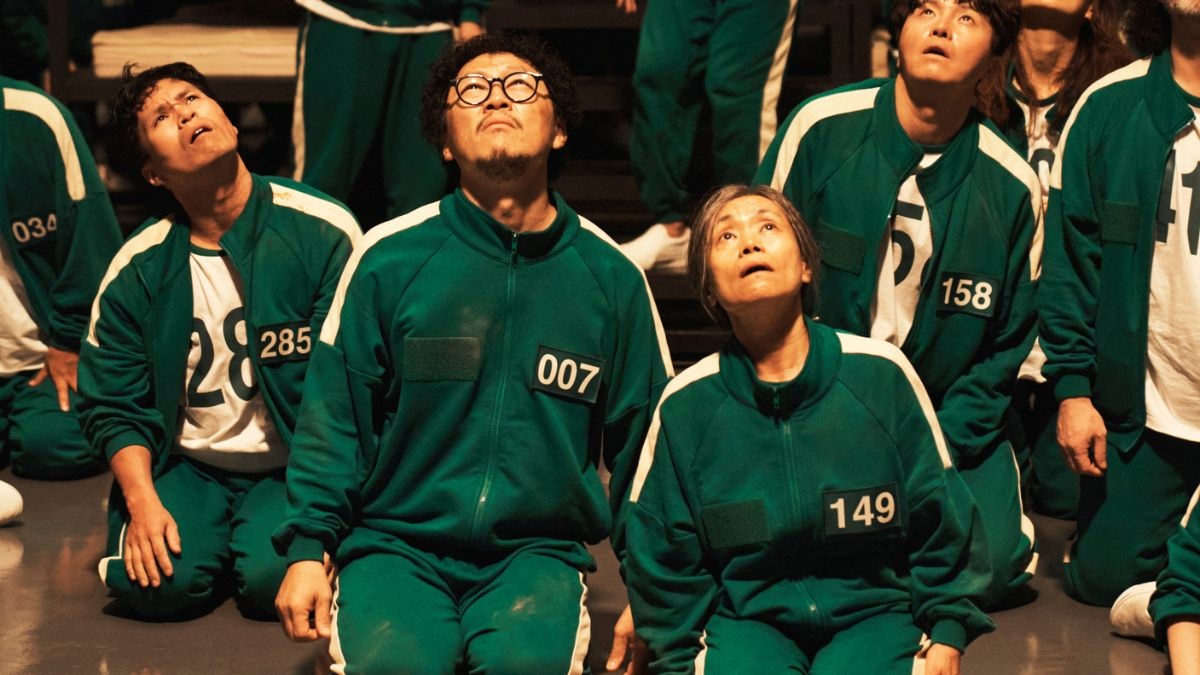
Visually, the series remains compelling, and the notion of democracy in a life-or-death setting is interesting, even if it is not always executed with nuance. The underlying social commentary about exploitation, class struggle, and the dehumanizing nature of debt is still impactful. Yet, because Season 2 spreads these messages out over numerous episodes and multiple new characters, it lacks the laser-focused intensity that made Season 1 so memorable.
Season 2’s weaknesses also highlight how the cultural saturation of Squid Game elements—parodies, merchandise, countless discussions—might dull the impact of watching more. The sense of discovery that marked the first season no longer applies. Thus, the sophomore effort is left wrestling with how to justify its own length and scope. In many ways, it affirms that too much of a good thing can diminish the quality that initially attracted audiences.
Squid Game Season 2 represents an earnest effort to expand upon a phenomenon. It navigates the treacherous path of living up to an iconic first season, grappling with the danger of becoming a mere echo. The show’s high points—character-driven performances, a continuing commitment to brutal social critiques, and a fresh spin on democratic decision-making under horrific pressures—prevent it from being dismissible. Yet, it cannot avoid feeling repetitive and bogged down by pacing issues.
Where Season 1 was taut and shocking, Season 2 often feels like it is trying too hard to recapture that lightning strike. The result is a season that will likely satisfy ardent fans curious about deeper lore but may disappoint those hoping for the same level of innovation and narrative tightness that initially catapulted the series into international acclaim.

